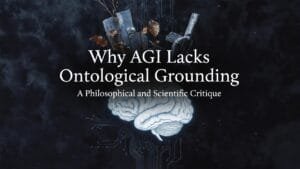The Shadow of Postmodernism: How it Distorted Perspectives

Postmodernism is a complex intellectual movement that emerged in the mid-to-late 20th century as a reaction against modernism and its emphasis on reason, progress, and universal truths. Postmodernism critiques and questions established ideas about reality, knowledge, and meaning, arguing that these concepts are socially constructed rather than objectively real. It is characterized by skepticism, relativism, and a rejection of grand narratives or metanarratives, which are large, overarching stories or ideologies, such as religion, science, or progress.
The development of postmodernism spans several intellectual fields, with contributions from notable figures who shaped its ideas. Jean-François Lyotard defined postmodernism as an “incredulity toward metanarratives” and highlighted the fragmentation of knowledge. Michel Foucault explored how power and knowledge are intertwined, showing that social and historical contexts shape truth. Jacques Derrida introduced deconstruction to analyze texts, revealing inherent contradictions and challenging fixed meanings. Roland Barthes advocated that authorship and meaning are open to multiple interpretations. Jean Baudrillard discussed “hyperreality,” where the boundary between reality and simulation is blurred, particularly in media. Gilles Deleuze and Félix Guattari rejected hierarchical structures in favor of fluid, decentralized systems of thought, using the concept of “rhizomatic” connections.
Postmodernism spans various fields, including art, literature, philosophy, architecture, and sociology. Its core features include skepticism of objective truth, emphasizing that truth is subjective and dependent on individual perspectives and cultural contexts. Relativism is another hallmark, emphasizing that no single cultural or intellectual framework is superior to another. Deconstruction is a method of analyzing texts to reveal hidden assumptions and contradictions. In art and literature, irony and playfulness often replace seriousness, and fragmentation focuses on fractured or decentralized experiences rather than cohesive, unified systems.
While postmodernism has enriched intellectual debates and provided valuable critiques of oppressive systems and ideologies, it has also been criticized for its potential adverse effects. By rejecting the idea of objective truth, postmodernism has made it harder to agree on shared realities. Postmodernism’s relativistic stance has sometimes been interpreted to mean that moral judgments are purely subjective, which can create ethical ambiguity and a reluctance to condemn harmful practices or ideologies. Critics argue that this relativism can enable tolerance for injustices or oppressive practices by framing them as “cultural differences” rather than universal moral failings. The critique of grand narratives and institutions has led to cynicism and apathy. If all ideologies are flawed and all truths are relative, it becomes difficult to justify collective action or commitment to social and political causes. Some argue that this has contributed to a decline in civic engagement and the rise of individualism over collective responsibility.
Postmodernist critiques of institutions like governments, religions, and universities have sometimes been seen as weakening the public’s trust in these structures, contributing to social fragmentation. The rejection of traditional authority has been linked to increasing political polarization and tribalism, where consensus and compromise become almost impossible. In art and literature, postmodernism’s emphasis on irony, parody, and deconstruction has been criticized for promoting a sense of detachment and nihilism. Some argue that postmodern art’s rejection of beauty and coherence has led to a cultural landscape dominated by shallow or meaningless works.
While postmodernism has its critics, it has also provided valuable tools for critiquing power structures, recognizing diversity, and challenging oppressive systems. For example, postmodernism has been crucial in social justice in challenging dominant narratives about race, gender, and sexuality, leading to greater inclusivity. In science, it has encouraged reflection on the biases and assumptions underlying scientific practices. However, its adverse impacts remain significant challenges, particularly the erosion of trust in truth, institutions, and collective action. Thus, Postmodernism’s legacy is deeply ambivalent, leaving us with valuable insights and troubling consequences.





